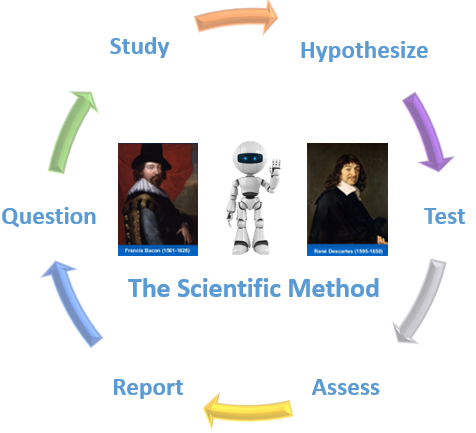Summer Graduate School
| Parent Program: | -- |
|---|---|
| Location: | IBM T. J. Watson Research Center, Yorktown Heights, New York |
Show List of Speakers
- Cristina Cornelio (Samsung AI)
- Claudia D Ambrosio (Centre National de la Recherche Scientifique (CNRS); École Polytechnique)



The summer school aims to expose participants to formal methods that can facilitate principled scientific discovery. The school will cover some of the basic automated statistical inference (in the form of machine learning techniques) and reasoning methods that are commonly used in scientific discovery, as well as novel techniques developed to tackle open questions and issues. This summer school will address novel computational methods for scientific discovery and focus on fusing axiomatic knowledge and experimental data to enable principled derivations of models of natural phenomena along with certificates of the consistency of these models with background knowledge specified as axioms.
School Structure
The school will consist of lectures, tutorials, a lab visit, a hands-on experimental session, an invited lecture seminars, and problem session. The tutorial will be more interactive than the lectures and will show students how to use important software tools. The purpose of the problem sessions is to reinforce students’ understanding of the material from the lectures by working on problems and reviewing prerequisites. Activities may include presentation of solutions to problems based on lectures, student and TA presentation of material relevant to lectures. In addition, students will learn to use and analyze relevant software packages and implementations.
Prerequisites
The minimum requirement for students to beneficially participate in this summer school are the basics of probability, algorithms, linear algebra, and discrete mathematics. See the first book (and chapters listed) for linear algebra, and the second book for discrete mathematics and probability.
- S. Boyd, L. Vandenberghe, Linear Algebra – Introduction to Applied Linear Algebra: Vectors, Matrices, and Least Squares, 2018, Cambridge University Press, Cambridge, UK. Chapters 1-3, 5-8, 10-14.
- CPSC 202a, Mathematical Tools for Computer Science lecture notes, Yale University. Chapters 2,10,12 (backup)
- 3. J. Erickson, Algorithms, 2019.
Application Procedure
SLMath is only able to support a limited number of students to attend this school. Therefore, it is likely that only one student per institution will be funded by SLMath.
For eligibility and how to apply, see the Summer Graduate Schools homepage.
Venue
The location of the summer school is the IBM T. J. Watson Research Center in Yorktown Heights, NY.
The Yorktown lab houses industry-leading facilities for advancing science and technology including an IBM Q lab where researchers are pioneering quantum computing, and the original THINKLab, where IBM researchers and clients collaborate on innovative solutions to complex industry challenges
Derivable discovery
Symbolic Regression
Automated Theorem Proving
Polynomial Optimization
Mixed-integer nonlinear optimization
Hypothesis generation and testing
03B35 - Mechanization of proofs and logical operations [See also 68V15]
65K10 - Numerical optimization and variational techniques [See also 49Mxx, 93-08]
03-04 - Software, source code, etc. for problems pertaining to mathematical logic and foundations